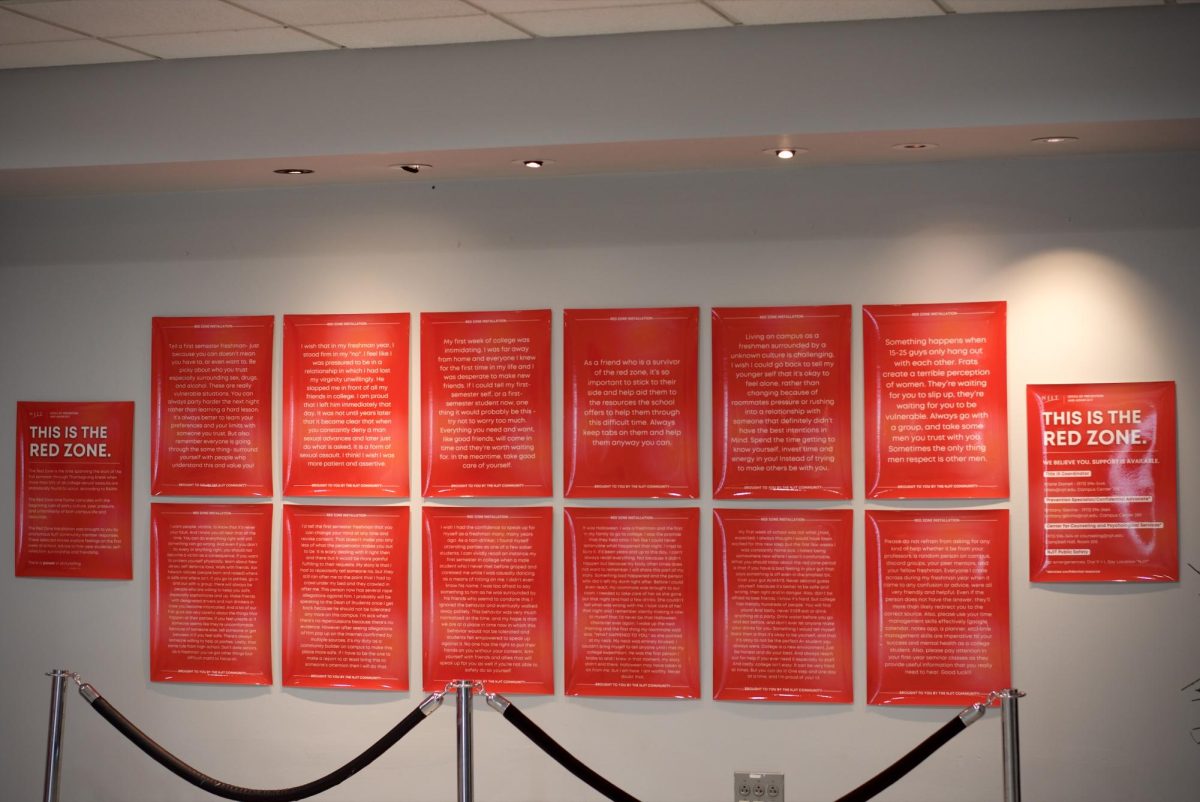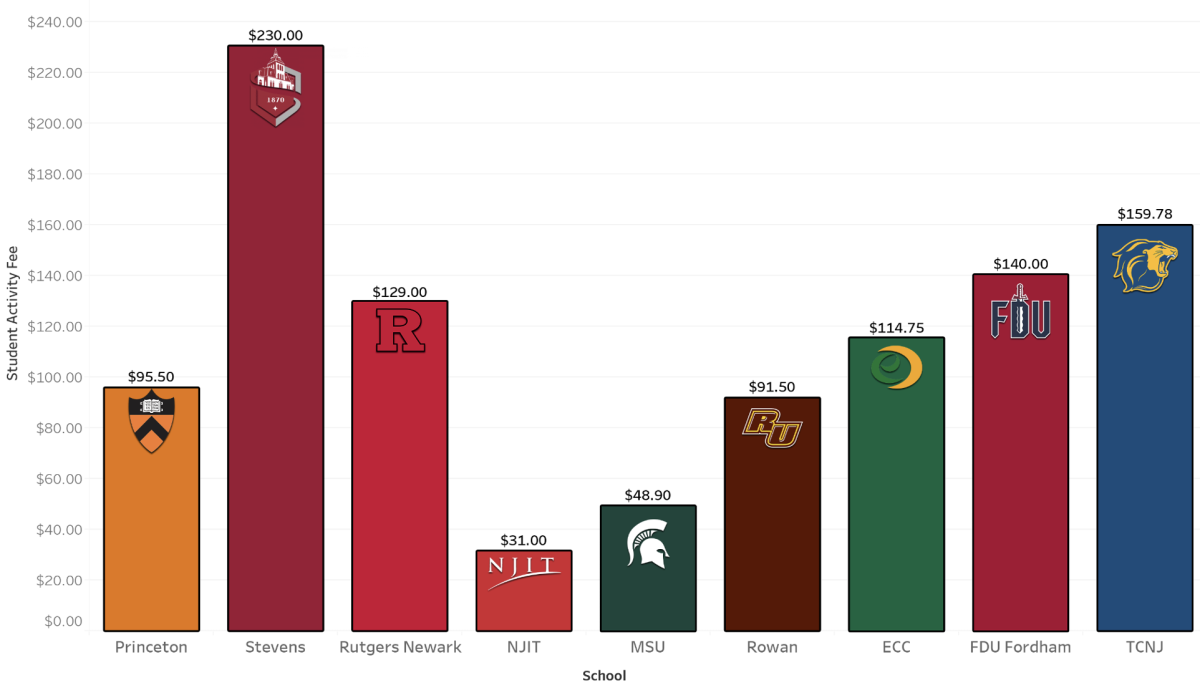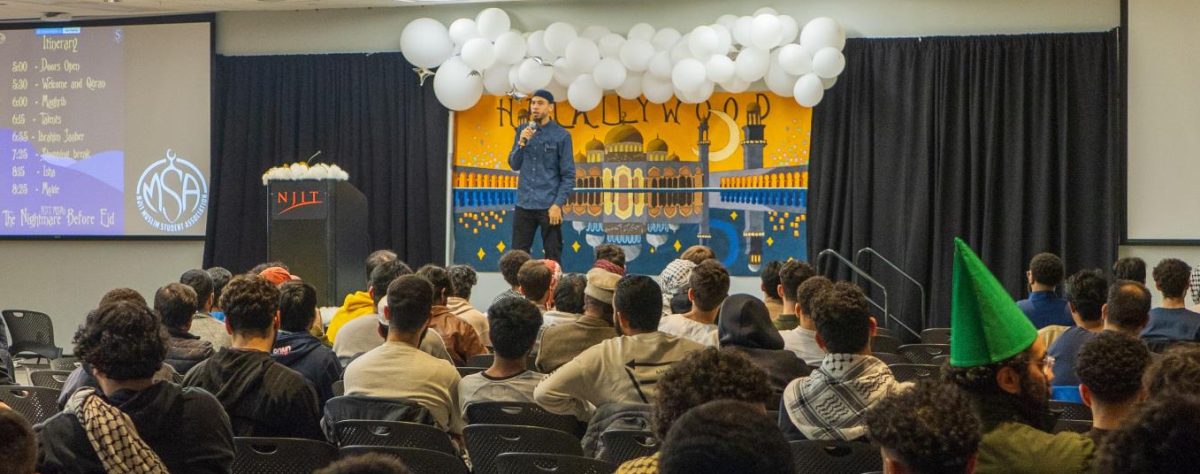This article contains mentions of sexual violence.
“Just because you can doesn’t mean you have to or even want to,” “I think I wish I was more patient and assertive,” and “my body oftentimes does not want to remember” are some sentences displayed on the second floor of Campus Center. These are words that NJIT community members — students, staff, and faculty — expressed regarding their college experiences or first times on campus.
These reflections are part of The Red Zone installation in the gallery area. There are 14 total displays with a red background and white text, and 12 of which consist of anonymous responses submitted by anyone at NJIT who wanted to share their thoughts.
The Red Zone refers to the time period during which about 50% of sexual assaults on college campuses occur — the beginning of the fall semester until Thanksgiving break. The Office of Prevention and Advocacy held events and put up the installation during the first full week of classes to raise awareness about sexual health, consent, and relationships.
“I really believe that it’s important for survivors, victims, students — however they want to identify — to have a voice,” said Brittany Gaviria Sanchez, Prevention Specialist. She joined the university in April and formed the office in June, making this the first full year that the office and position will be in place.
While working with other colleges in the past, she had come across installations that had complete outfits of survivors, highlighting that the clothes people wear does not matter to the abuser. “I didn’t know if there would be trust between me and NJIT community members for that type of display,” she commented, so she instead went with a text-based presentation.
In late August, Gaviria Sanchez reached out to departments across campus and sent out an anonymous form for anyone at NJIT to fill out; once the office’s Instagram account was created, she was also able to reach out to audiences online for their input as well. By September, she received about 10 responses, and as she was designing the display, she got two more at the last minute.
“There was a moment when I was like, ‘What if no one says anything? What am I going to do?’ But we did get 12 stories,” she said. This year, she didn’t have to select ones to display since all of them could go up, but she hopes to get more in future years, even if she hasn’t decided on a way to choose which ones are shown.
The prompts on this form included various topics, not just ones related to sexual violence. Some answered the question regarding any advice the respondent would tell their first-year self. There also was a prompt about giving advice to people entering college and trying to make friends.
One of the stories included, “Frats create a terrible perception of women. They’re waiting for you to slip up… Sometimes, the only thing men respect is other men.” This sparked conversation about the mention and incorporation of gender in topics like sexual misconduct. Gaviria Sanchez addressed this while also considering that this was in fact someone’s story that the person meant to share.
“Sexual and dating violence impacts people of all walks of life, of all genders, all socioeconomic classes, all religions, etc., but we also do know — because of things like the patriarchy and our long standing history of violence — that there are certain groups that are more vulnerable,” she explained. “I can’t sit here in all fairness and say that, for example, cisgender and trans women do not face violence at higher rates; they do, and it’s because racism, sexism, ableism, and other forms of violences are also at play.”
She mentioned that it’s not her place to silence anyone who submitted their story for this installation, even if it makes someone else uncomfortable.
“We need to talk about how, unfortunately, there are moments that Greek Life — as much as they can be an asset to a campus — that can also potentially cause harm. But this isn’t also working in isolation. This isn’t just to point out Greek Life; there are many different student groups that unfortunately, rather than supporting students or offering them a safe space, cause harm,” Gaviria Sanchez stated. “Instead of taking that defensively, I hope we can welcome conversation and ways to move forward, so we can create the culture that we all say we want.”
While she hasn’t received much official feedback about the installation, she welcomes anyone to share their thoughts. She does acknowledge that certain people may feel this was too triggering for them to see in the gallery — it might be an area more difficult to avoid for some people who regularly visit that floor.
Nonetheless, she indicated that she has generally heard positive feedback so far. “I had a faculty member in passing say that this is the first time that we are proactively talking about The Red Zone or the swarm of violence on campus,” she said, recognizing that universities are institutions in which the topic is often kept under wraps.
“I’m very, very happy and proud and grateful for everyone who sent their stories,” Gaviria Sanchez emphasized. “I am hoping that as the years go by, this will continue being a Fall installation we do every year.”
“There are many different student groups that unfortunately, rather than supporting students or offering them a safe space, cause harm. Instead of taking that defensively, I hope we can welcome conversation and ways to move forward, so we can create the culture that we all say we want.”
Brittany Gaviria Sanchez, Prevention Specialist at the Office of Prevention and Advocacy






























